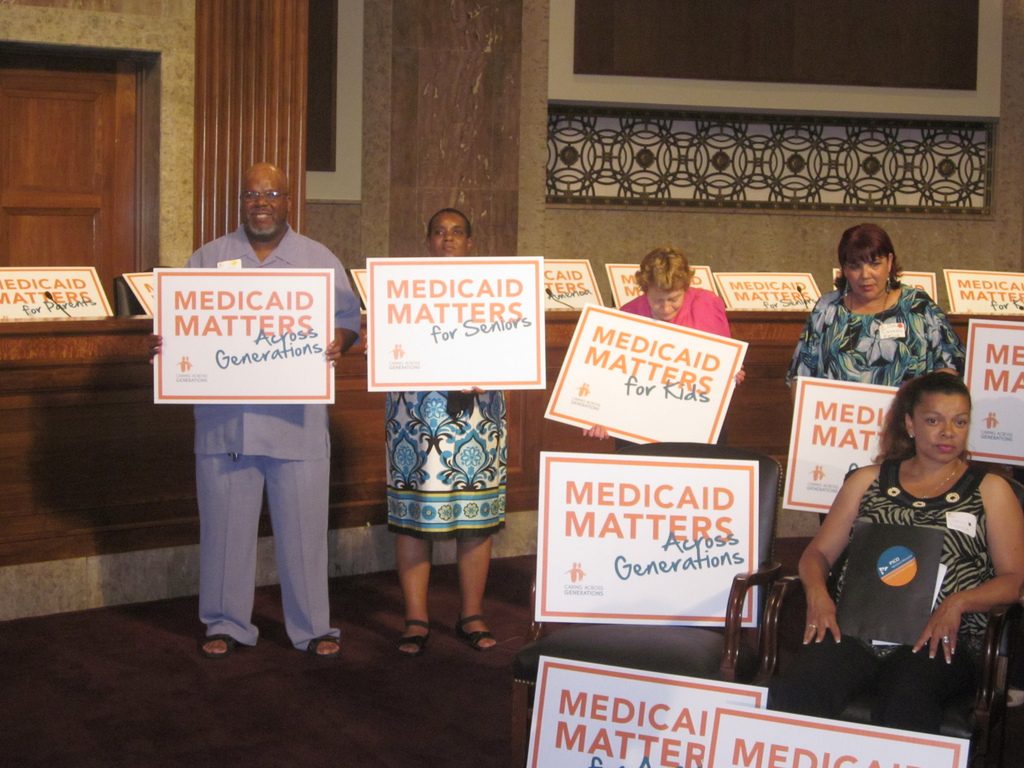Mainstream liberals, and in particular Democrats, have been known to cozy up to radical language and symbols just as their value, and with it the political fortunes of those who parrot and exploit them, begins to rise. The last few years are crowded with examples.
I’m thinking here of liberals’ oafish performance as champions of social justice. You see it most strikingly in the warm embrace of intersectionality and Black Lives Matter (both of which emerged from the black feminist tradition). That each has exploded in popularity in recent years isn’t itself the problem. The problem is that in the hands of many a liberal politician and pundit, they’ve been rapidly evacuated of substance. Substance that otherwise includes a set of short and long-term political commitments aimed at improving black life. Anyone who claims to value those lives should feel an awful rage at the outcome. After all, rhetorical admiration for black people without a full-throated embrace of policies that stand to improve the actual lives of black people may buoy the fortunes of the speaker, but it’s a pretty shitty deal for…black people.
What’s cool is that it doesn’t have to be this way. Take healthcare. Judged by the misery it inflicts on black people, few systems should be as easily slated for decimation as America’s employer-provided system. In its place, the admirers of black life should get behind Medicare-for-All pronto.
Employer-Provided Insurance Disproportionately Screws Black People
As the healthcare debate raged in early 2009, Glenn Beck stormed from microphone to microphone, thundering that the ACA was just the opening salvo in Obama’s stealth war of reparations: “The health care bill is reparations. It’s the beginning of reparations.” Tucked in between Beck’s aggressive lunacy was a kernel of truth. Any leftward lurch on healthcare disproportionately impacts black people because black people are disproportionately uninsured.
The reasons why are not mysterious. America’s system of private, employer-provided care creates massive cracks for people to fall through. If having a job is the main bridge over that yawning gap then, by definition, those without a job will often find themselves falling into the abyss. And given the powerful role racism plays in the American labor market, it’s no surprise that black people are overrepresented among the fallen.
Consider that the United States, as a deliberate feature of monetary policy, maintains about a 4% unemployment rate. This alone is damning evidence against an employment-based model. Then note, highlight, and carve deep into memory that black unemployment consistently doubles white unemployment, that the same is true of black poverty, and that the median white family is worth more than 33 times the median black family. The outcome is about what you’d expect: higher uninsured rates among black people. And a higher likelihood of experiencing all the horror that comes with―needless financial and physical ruin chief among them.
There’s more. Consider the fact that jobs are impermanent things, with tens of millions of people sliding in and out of employment every year. It’s easy to see what’s wrong with building such an unreliable bridge to healthcare. Even if you snag a job that provides coverage, the threat of having your insurance clawed away haunts you at every turn.
Now recall the structurally high unemployment rate of black people. The horror of all this should, by now, be painfully obvious. For all people, and black people especially, employer-provided coverage is the flimsiest of all possible bridges to stand on in the first place.
All of which illuminates a terrifying and unsurprising fact of American life: black people suffer the absurd cruelty of our healthcare system in a way that few others do. These design flaws are deeply harmful, often fatal, and always avoidable. The solution is as obvious as the cruelty: guaranteed coverage for everyone.
Obamacare Only Partially Closed the Gap
Although our employer-provided system throws people into the abyss just as they enter life’s most uncertain chapters, popular single-payer programs like Medicare and Medicaid have been there to pull many of them back.
There’s no doubt that Obamacare’s greatest triumph was its expansion of Medicaid, which extended that good socialized medicine to millions of America’s uninsured. There are several important lessons here, but I’ll rattle off just a couple. For one, it’s a solid reminder why public health care tends to be more popular than market-based alternatives. A system of guaranteed, quality, and easily navigable coverage will tend to be vastly preferable to one where decisions about who deserves to live or die depend on the compassion of the job market.
But it’s also been a lesson in how barbarism preserves itself. The current state-federal hodgepodge means that conservative states can more effectively sabotage healthcare. In their desperate crusade against Obamacare, 19 states have refused to take up the Medicaid expansion. The majority of those states are also where the majority of black people live: the American south. It must be said that anything short of a full-blown Medicare for All style system has made peace with this grim possibility.
Conclusion
The bottom line is this: in a country that relies overwhelmingly on employers to deliver healthcare to its people, the unemployed and underemployed will always be at risk of falling into the country’s sprawling and ruthless healthcare abyss. And in the United States, where black people sit at the bottom of most things economic, the absence of universally guaranteed coverage will always mean more misery piled atop black lives. Lives that have only recently become fashionable to hail as worth more than the unsleeping cruelty their country has inflicted on them. And lives those same newfound admirers can’t possibly give a damn about while trashing the sort of policies capable of preventing their economic and physical ruin.

